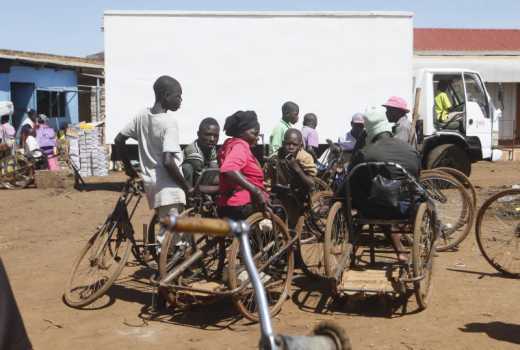×
The Standard e-Paper
Join Thousands Daily

A young man sits inside a dark abandoned stall in Busia’s Sofia market; one of the busiest centres in the county.
His old sisal hat obscures his face, covering his eyes almost completely. He is engrossed on his phone, typing furiously and occasionally raising his head to sip on a bottle of cheap liquor placed delicately on his old chair.